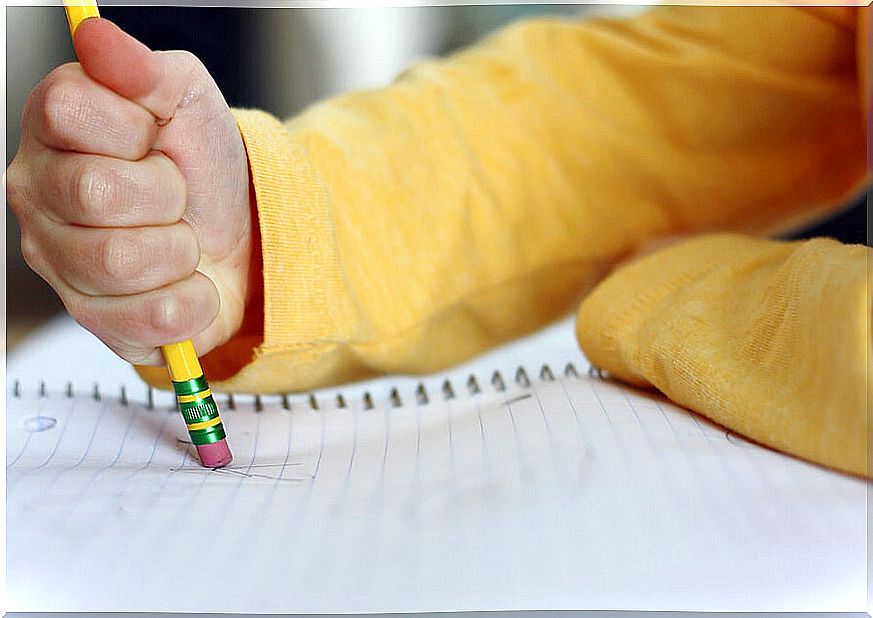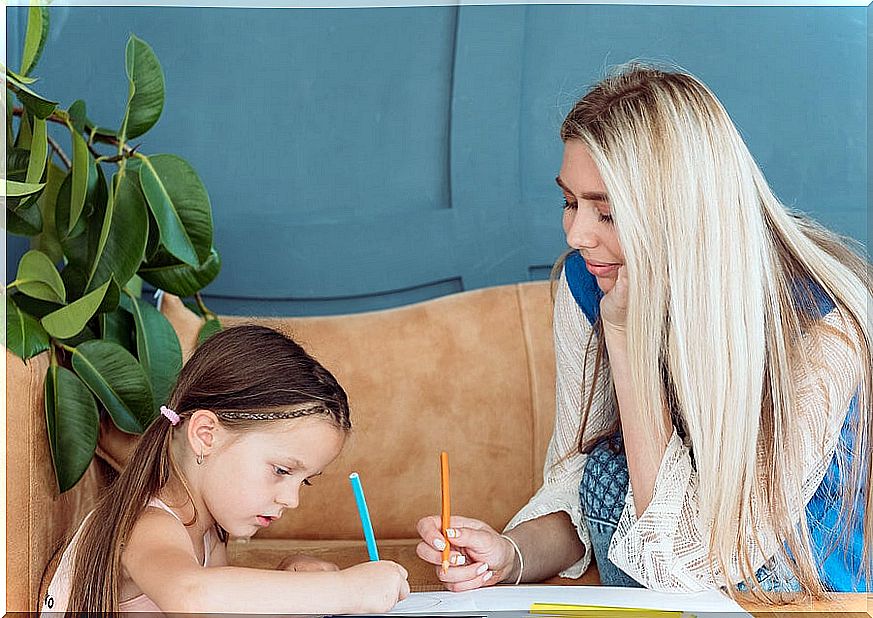My Son Makes A Lot Of Spelling Mistakes, What To Do?

Learning to write is a long and complicated task for children. In the same way, if you notice that your child makes a lot of spelling mistakes, you should know that there are several ways to improve and help him in this learning. In this article, we are going to tell you everything you need to know.
Word games, dictations, or the habit of reading frequently are some of the best ways to help keep your child from making spelling mistakes. Therefore, below, we present some tips that will help your child not make more mistakes. Take note, be patient and don’t forget that the goal is to improve through work and effort!
What to do to avoid spelling mistakes?
1. Develop phonological awareness
The first of the tips that we put at your disposal is that, in order not to make spelling mistakes, you have to develop phonological awareness. This is critical to spelling development, because children need to know how to correctly pronounce a word before trying to spell it.
Ultimately, this means that the child must be able to recognize and distinguish the sounds within the recited words, and then translate them back to print. However, if the child has a phonological weakness, help him strengthen this aspect.
2. Word games
The time to play and learn has come. Keep in mind that practicing word games is a fun way to test your little ones’ spelling skills. At the same time, it is also a great opportunity to learn new words.

There is a wide variety of possibilities, although classic board games such as Scrabble and Scattergories are excellent tools for the little ones in the house to practice spelling and have a good time at the same time.
Don’t forget that children love games; It will always be easier for them to learn while enjoying themselves.
3. Recite short dictations
Third, it is advisable to recite short dictations – one or two sentences long – to help your child make fewer spelling mistakes. You can recite them off the cuff or even take them out of a newspaper or book article that piques their interest.
Similarly, it is important that the child always has access to reference books, whether at school or in his room. When the time comes for correction, it is just as necessary to discuss the errors and use them as a starting point for improvement.
4. Read frequently
Without any doubt, one of the best tips that we can give you so that your child does not make spelling mistakes is that you encourage him to read frequently, ideally about 30 minutes a day. Reading is an excellent exercise to develop vocabulary and improve sentence syntax, as the brain naturally absorbs the words that children have in front of them.
Also, if you want to stimulate the child’s interest, it is best to focus him on readings that correspond to his tastes, as well as finding a time and a place to carry out the reading sessions on a routine basis.

5. Make a drawing
Finally, you should know that you can also use drawing as another mnemonic device. Pictures are a great way to remember spelling for kids; To help your child improve in this aspect, you can always turn words that are difficult to spell into pictures.
For this to be possible, you just have to draw whatever word he is having trouble with and turn the letters into a picture. In this way, they will stop being just letters and will be transformed into a graphic representation.
As you have seen, there are many ways to help children improve and avoid making spelling mistakes. However, you should know that forcing an activity on them or making it too demanding only serves to intensify the child’s negative feelings about it.
Therefore, it is recommended that you follow these tips and try to motivate your child during this improvement process. The strategy will be of absolutely no use if you do not get your child interested in improving.










